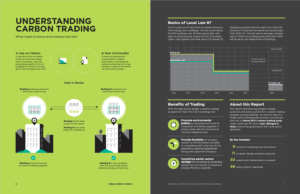Can Carbon Credits Be Traded Internationally?
Can Carbon Credits
If a company has a carbon emissions cap and a goal to decrease its emissions, then it can choose to purchase carbon credits. It is a way of meeting obligations to reduce emissions under a national or international scheme. Companies that meet their quotas will be able to purchase allowances from the international market at prevailing prices. However, the market for carbon credits is still fragmented and not completely regulated.
Some companies earn a profit by selling their allowances to other companies. In this type of buy carbon credits, the price is usually quoted in CO2e or Euros per tonne of carbon dioxide. Another option is to sell the allowances privately.

Some countries have implemented carbon taxes, and others allow the use of high quality credits. Countries can also set standards that credit-generating projects must meet, so that the tradable credits are high-quality.
Can Carbon Credits Be Traded Internationally?
Whether or not a company can trade carbon credits internationally depends on the country. For example, Switzerland has a voluntary carbon market. Other carbon markets are being developed in Japan, New Zealand, and Canada.
The Kyoto Protocol and the Paris Climate Accord have targets for reducing greenhouse gas emissions. Countries can set a quota for the emissions of their own companies, as well as for other organizations. They can then sell excess capacity. Also, some companies will produce less emissions than their allotted quotas, so they can buy extra allowances to meet their obligations.
Carbon credits are issued by a government or private organization. They are then traded in the market. To qualify for a credit, the project must be approved by an international scheme, called the Sustainable Development Mechanism (SDM). Private investors have the opportunity to invest in a high-quality project.
There is also a regulatory market, called the EU ETS, which applies to operators in the European Economic Area. This market has been growing rapidly. In recent years, the price of carbon credits has declined and the supply has increased. This is because of the economic crisis. But the price has not dropped enough to encourage companies to start lowering their carbon emissions.
As a result, the world’s carbon markets are growing significantly. Last year, the value of these markets reached $272 billion. These markets will be more valuable with new regulations.
Many of the new rules will reduce the fragmentation of carbon markets. As the rules are more specific, there is more certainty for businesses and investors. Consequently, the demand for credits will increase, and the market price will rise. That will help more groups to take action for the environment.
New rules will also improve integrity. Those wishing to buy or sell credits will have to show they have bought enough permits to cover their annual emissions. Previously, companies could buy a limited number of credits and then sell them to the dirtiest rivals. With the new rules, the government can decide to lower the number of allowances available in the market, thereby putting more pressure on companies to cut their emissions.
Leave a Reply